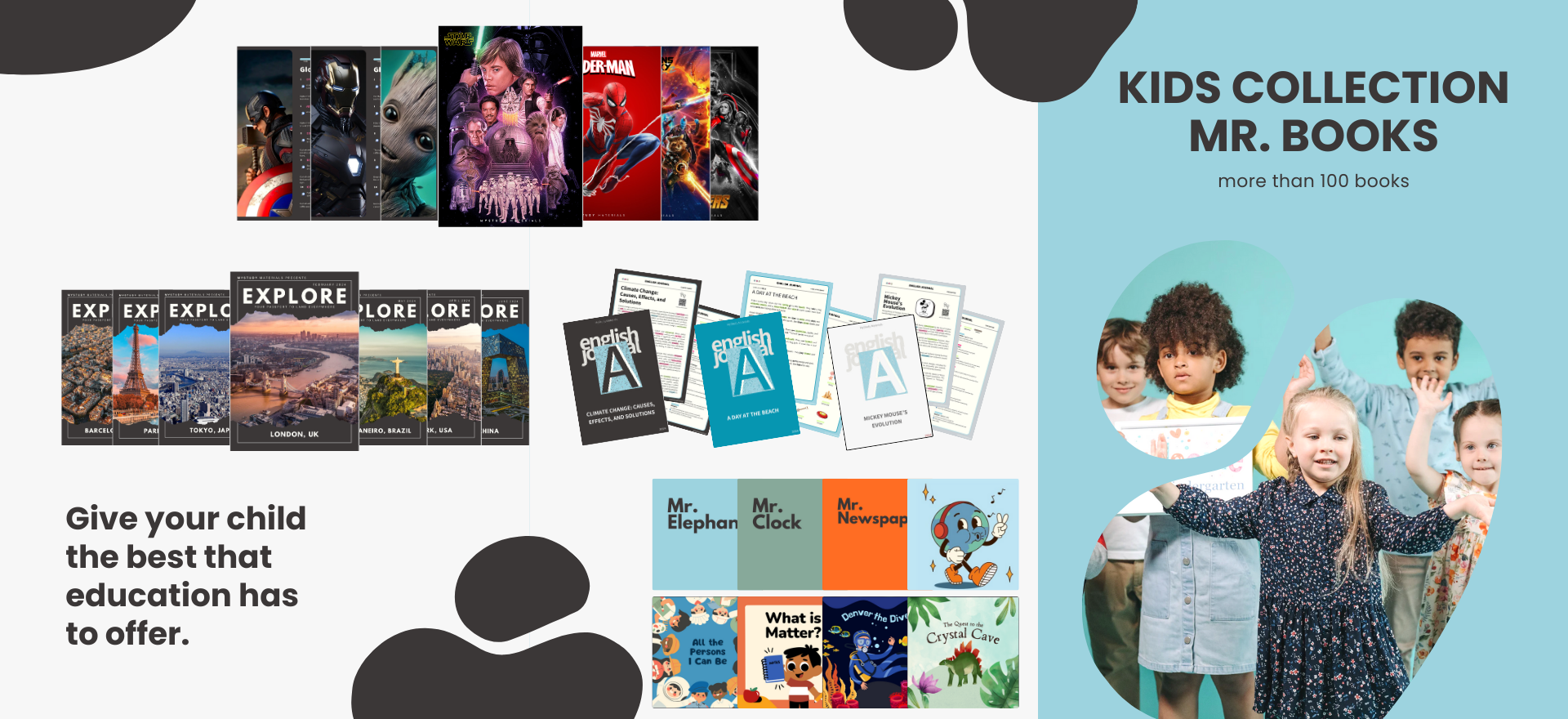Countable and Uncountable Nouns in English
Gustavo CamiloMastering Countable and Uncountable Nouns in English: A Complete Guide 🌟
Understanding the difference between countable and uncountable nouns is essential for mastering English grammar. Whether you're shopping for groceries 🛒, ordering food 🍽️, or discussing your hobbies 🏀, knowing how to use these nouns correctly can make your communication more natural and precise. In this article, we’ll break down the rules, examples, and fun exercises to help you understand countable and uncountable nouns with ease!
What Are Countable and Uncountable Nouns? 🤔
Countable nouns are things that we can count individually, while uncountable nouns represent things that cannot be counted separately. This distinction impacts articles, quantifiers, and verb agreement in English.
Here’s a quick overview:
- Countable nouns: Things that can be counted (e.g., one apple, two books, three chairs).
- Uncountable nouns: Things that cannot be counted individually (e.g., water, rice, air).
Why Are Countable and Uncountable Nouns Important? 🤝
Mastering the difference between countable and uncountable nouns helps you:
- Use correct quantifiers: Learn when to use "many" vs. "much."
- Choose the right articles: Use "a" or "an" for countables, and "some" or "any" for uncountables.
- Improve clarity: Speaking and writing with the right noun forms ensures your message is clear.
How to Use Countable and Uncountable Nouns Correctly ✨
Let’s break down the rules for using countable and uncountable nouns.
1. Countable Nouns 🧑🤝🧑
Countable nouns refer to things that you can count individually. These are nouns that can be singular or plural.
- Singular: "I have an apple." 🍎
- Plural: "I have three apples." 🍏
Key points:
- Use "a" or "an" for singular countable nouns (e.g., "a book," "an orange").
- Use "many" or "few" to talk about quantity (e.g., "many books," "a few apples").
2. Uncountable Nouns 🏞️
Uncountable nouns refer to things that cannot be counted individually. These are typically substances, materials, or abstract concepts.
- "I need some water." 💧
- "She has a lot of knowledge." 📚
Key points:
- Do not use "a" or "an" with uncountable nouns (e.g., "a water" is incorrect).
- Use "much" or "little" to talk about quantity (e.g., "much water," "a little knowledge").
3. Common Examples of Countable Nouns 🌍
Here are some common countable nouns you’ll encounter in everyday life:
- People: "one friend," "two teachers," "three students"
- Objects: "a table," "two chairs," "five books"
- Animals: "a dog," "several cats," "many birds"
You can count them easily, and they have plural forms: friend becomes friends, dog becomes dogs, and so on.
4. Common Examples of Uncountable Nouns 🌟
Here are some common uncountable nouns you might use frequently:
- Substances: "water," "sugar," "coffee"
- Abstract concepts: "love," "happiness," "advice"
- Groups of things: "furniture," "luggage," "information"
These nouns do not have plural forms and are treated as singular. For example, we say "water" (not "waters") and "advice" (not "advices").
Polite and Fun Examples: Countable vs. Uncountable! 🏆
Here’s how to make countable and uncountable nouns polite and fun in everyday conversations:
-
Countable Noun Example:
- "Can I have a sandwich for lunch?" 🥪
- "I would like two sandwiches please!" 🍞
-
Uncountable Noun Example:
- "Could I have some water, please?" 💧
- "I need a little help with my homework." 📝
Quick Tips for Mastering Countable and Uncountable Nouns 🏅
-
Quantifiers:
- For countable nouns, use "many," "few," "a few" (e.g., many apples, a few books).
- For uncountable nouns, use "much," "little," "a little" (e.g., much water, a little sugar).
-
Articles:
- Use "a" or "an" for singular countable nouns (e.g., "an apple").
- Don’t use articles for uncountable nouns (e.g., "water," not "a water").
-
Countable/Uncountable Pairs:
Some nouns can be both countable and uncountable, but their meanings change. For example:- "Chocolate": "I need some chocolate" (uncountable = substance), "I bought three chocolates" (countable = individual pieces).
Exercises to Practice Countable and Uncountable Nouns 📝
-
Fill in the blanks with countable or uncountable nouns:
- "I have ___ (many/much) books."
- "There’s ___ (a little/a few) coffee in the pot."
-
Correct the mistakes:
- "I have a few waters." ➔ "I have a few bottles of water."
- "I don’t have many luggage." ➔ "I don’t have much luggage."
-
Group the nouns as countable or uncountable:
- Water, chair, advice, dog, rice, book
(Answer: Countable: chair, dog, book. Uncountable: water, advice, rice.)
- Water, chair, advice, dog, rice, book
Expand Your Knowledge: Fun Facts About Countable and Uncountable Nouns 🎉
-
Why uncountable nouns don’t have plural forms:
Uncountable nouns are seen as a "whole" or a "mass," which is why they don’t have a plural form. For example, "furniture" is a collective term for all types of furniture, so it stays singular. 🛋️ -
Some nouns are both countable and uncountable:
Take "cake" as an example:- Countable: "I ate three cakes." 🍰
-
Uncountable: "I ate some cake." 🍰
The difference is whether you refer to individual pieces or the mass of the substance!
-
Cultural note: In English-speaking countries, it’s common to refer to foods like “bread” or “cheese” as uncountable, but other languages have plural forms for these! 🍞🧀
Wrap-up: Master Countable and Uncountable Nouns! 🌟
Now that you know the difference between countable and uncountable nouns, you can confidently use them in your conversations. Whether you're shopping, ordering food, or making small talk, getting the noun form right makes your English sound more natural and fluent.
Remember:
- Countable: Things you can count individually!
- Uncountable: Things you can’t count separately (like liquids, substances, and abstract ideas).
Keep practicing, and soon using countable and uncountable nouns will become second nature. 🎉

